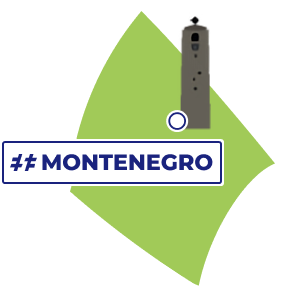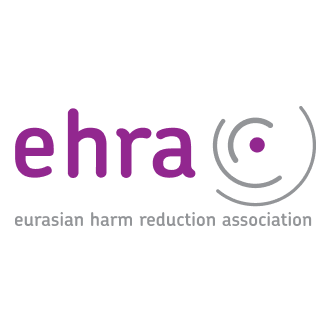
Montenegro
01. HIV care cascade
ACTIVITIES
Country level support to adoption and implementation of HTS guidelines and introduction of self-testing, community-based testing and decentralized testing into national policy documents and clinical guidelines, and harmonized testing policies and processes with new WHO recommendations in four (4) countries of the SEE sub-region (Albania, Montenegro, North Macedonia and Serbia)
Progress to date
In 2022, the project conducted an assessment on policies, regulations, and practice of HIV Rapid Testing/Self-testing in 4 SEE countries and developed a report on findings and recommendations. The purpose of this assessment was to evaluate country-specific policies, regulations, and practical factors that are currently facilitating or affecting community-level access to rapid diagnostic tests, including self-testing of HIV.
The SoS project has been instrumental in advancing self-testing and community-based HIV testing in SEE through persistent advocacy, strategic meetings, and expert consultations. Our partners have actively engaged with ministries and public health institutes to push for the integration of self-testing into national HIV strategies and the expansion of community-based testing services.
The advocacy work of SoS partners in 4 countries with stakeholders culminated in the incorporation of self-testing into updated guidelines and HIV testing protocols, namely:
- In North Macedonia, a significant milestone was reached within SoS in 2023 with the inclusion of community-based testing and self-testing initiatives under the National HIV Program. Both community-based HIV testing and self-testing are part of the annual National HIV Program and both are delivered by civil society organisations. The evidence for community based testing and self-testing in 2024 is present in HIV report.
- In Albania, legislative and regulatory revisions have been made, including HIV self-testing, community-based testing, and decentralised testing with the approval in 2022 of the National Guidelines for HIV testing and prevention – on page 16 and in PrEP protocol. As evidence of availability of self testing please see on the page 14 in National 2023 HIV report from the IPH marked with yellow.
- In Montenegro, self-testing, community-based testing and decentralized testing were included in Voluntary Counselling and Testing protocol. Community based testing and new Protocol for HIV testing in Montenegro is modified on WHO guidelines for HIV testing. Community testing is done by CAZAS and community organizations in mobile vans and was integrated through cooperation with IPH during 2024. Several actions have been conducted and as evidence you can find public announcements of some of community testing activities organized in 2024 in Montenegro in supporting docs. Decentralized testing is done in 8 VCT centres in Montenegro.
- In Serbia, within SoS project new VCT protocol that integrate self and community based testing as a regular component of healthcare protocols was developed and approved by the Ministry of Health and the Health Institute. Information on self and community based testing is available. In 2024 community based testing was carried out exclusively through drop-in centers and mobile vehicles. Self-testing for HIV is recognized in the new guidelines and will be piloted for HIV and HCV through community-based services within the new national Global Fund program in Serbia in 2025.
Introduction of self-testing, community-based testing and decentralized testing into national policy documents and clinical guidelines, and harmonized testing policies and processes with new WHO recommendations, including with TA provided by the WHO Regional Office, Europe
Progress to date
In 2022, the project conducted an assessment on policies, regulations, and practice of HIV Rapid Testing/Self-testing in 4 SEE countries and developed a report on findings and recommendations. The assessment was conducted in North Macedonia, Albania, Montenegro, and Serbia. The purpose of this assessment was to evaluate country-specific policies, regulations, and practical factors that are currently facilitating or affecting community-level access to rapid diagnostic tests, including self-testing of HIV. Some of the key recomendations which are suggested: to update National Guidelines/Protocols for HIV testing, outlining clear HIV testing algorithm in line with WHO recommendation including community based testing and HIV self-testing; update the existing internal protocol on HIVST; develop policy and advocacy recommendations for reducing HIV-related stigma and discrimination; integrate HIV self-testing into existing HIV service delivery models including OST programs. The report can be found at the link.
The advocacy work of SoS partners in 4 countries with stakeholders culminated in the incorporation of self-testing into updated guidelines and HIV testing protocols, namely:
- In North Macedonia, a significant milestone was reached within SoS in 2023 with the inclusion of community-based testing and self-testing initiatives under the National HIV Program. Both community-based HIV testing and self-testing are part of the annual National HIV Program and both are delivered by civil society organizations. The evidence for community based testing and self-testing in 2024 is present in HIV report.
- In Albania, legislative and regulatory revisions have been made, including HIV self-testing, community-based testing, and decentralized testing with the approval in 2022 of the National Guidelines for HIV testing and prevention – on page 16 and in PrEP protocol. As evidence of availability of self testing please see on the page 14 in National 2023 HIV report from the IPH marked with yellow. In Montenegro, self-testing, community-based testing and decentralized testing were included in Voluntary Counselling and Testing protocol. Community based testing and new Protocol for HIV testing in Montenegro is modified on WHO guidelines for HIV testing.
- Community testing is done by CAZAS and community organizations in mobile vans and was integrated through cooperation with IPH during 2024. Several actions have been conducted and as evidence you can find public announcements of some of community testing activities organized in 2024 in Montenegro in supporting docs. Decentralized testing is done in 8 VCT centres in Montenegro.
- In Serbia, within SoS project new VCT protocol that integrate self and community based testing as a regular component of healthcare protocols was developed and approved by the Ministry of Health and the Health Institute. Information on self and community based testing is available. In 2024 community based testing was carried out exclusively through drop-in centers and mobile vehicles. Self-testing for HIV is recognized in the new guidelines and will be piloted for HIV and HCV through community-based services within the new national Global Fund program in Serbia in 2025.
Introduction of the piloted PrEP models to the healthcare systems and advocate to revise and update national policy documents
Progress to date
Bosnia and Herzegovina and Montenegro are awaiting the launch of the PrEP pilot project between MCM (Protocols have been developed, client waiting lists are available, study-visits have been carried out for the project staff). The first clients are expected to receive PrEP in Q1 2023.
Bosnia and Herzegovina and Montenegro successfully launched a pilot PREP project among MSM (as of January 1, 2024, number of clients: BiH – 28, Montenegro – 51). Thanks to the coordinated work of the CSoS 2.0 project and partners in Balkans, a pre-exposure prophylaxis drug was purchased for both countries at 10 times cheaper than the commercial drug used in the countries for ART regimens. Our partners SEE Network, with technical support from WHO, developed Protocols and prepared PREP sites to launch the project.
The successful completion of the pilot projects in Bosnia and Herzegovina (65 clients) and Montenegro (81 clients) led to the inclusion of PrEP in national funding schemes. In Bosnia and Herzegovina, an indication for PrEP was officially registered during the reporting period. Since these drugs are also used to treat HIV and are included in the list of essential medicines, they are available free of charge, ensuring uninterrupted access to PrEP. Montenegro is in the final stages of including PrEP in the positive list of medicines, which will allow the state to procure PrEP. The project is successfully expanding in North Macedonia (153 clients). By the end of 2024, a total of 300 clients in the three countries have become participants in the PrEP program.
Advocacy for PrEP financial costs to be covered by national funding schemes (including health insurance)
Progress to date
The second main activity regarding of PrEP was advocacy for PrEP financial costs to be covered by national funding schemes. Our focus in 2022 was preparation of set of recommendations for institutionalization of PrEP in Bosnia and Herzegovina and Montenegro and by the end of the year we finalized first drafts which is distributed to the stakeholders.
This activity is planned for 2024. But remarkable progress was achieved in Bosnia and Herzegovina, where funding for PrEP-related expenses was already included in national schemes.
BiH
PrEP-related expenses is included into national funding scheme. PrEP drugs are included on the essential medicines list, they are available free of charge, ensuring uninterrupted access to PrEP in the Federation of BiH.
Montenegro For the including PrEP into national funding schemes two main steps should be done: approval PrEP drugs by Ministry of health to be distributed towards KPs and to be on Positive list of drugs.
List of approved drugs by Agency of drugs in which Gilestra duo is registered for PrEP use: https://cinmed.me/humani-lijekovi/humani-lijek/?id=3217
The Initiative to include pre-exposure prophylaxis (PrEP) as a new indication on the List of Medicines to the Commission at MoH has been submitted.
Provision of HIV prevention services with precautions against COVID-19
Progress to date
Work on shelters has expanded – in addition to 5 shelters for working with women who use drugs in conditions of violence (Ukraine, Serbia, North Macedonia, Kazakhstan), support for flexible shelters for representatives of the LGBT community in Kazakhstan, Uzbekistan, Kyrgyzstan and Tajikistan has been added. The program was distinguished by a special programmatic approach to working with clients – about 3,200 clients received material assistance in the form of food packages (Georgia, Kazakhstan). PPE support in Kaz for migrants and KGP (124,000 disposable masks, 1,000 antiseptics); CLM to provide quality services for clients of OST programs in 7 countries.
Procurement of condom vending machines to reduce contacts during COVID-19
Progress to date
2 countries (Moldova, Montenegro) were supported in purchasing vending machines. 13 machines were purchased to reduce contacts during COVID-19.
National Contingency Planning
Progress to date
Supporting key group populations in a COVID setting “General contingency planning guide developed in the frames of the C19RM is available here.
Guide by APH for Contingency Planning for Key Population HIV Services during COVID-19 and Other Emergencies for North Macedonia, Serbia, Bosnia and Herzegovina, Montenegro, Moldova, Georgia, Kazakhstan, Uzbekistan, Tajikistan and Kyrgyzstan in English is available at the link https://aph.org.ua/en/eeca/ in the folders with the names of each country.
Assessment of OAT sustainability
Progress to date
Quality of harm reduction – mapping of the main challenges and barriers in the modernization of principles, values, and approaches in the work of harm reduction programs in Montenegro was held the report is available at the link.
Community groups conduct community-led assessment of national quality standards in accordance to IDUIT and organize dialogue with service providers and MOH/local authorities
Progress to date
Quality of harm reduction – mapping of the main challenges and barriers in the modernization of principles, values, and approaches in the work of harm reduction programs in Montenegro was held the report is available at the link
02. Removing HR/gender barriers
ACTIVITIES
Developing and launching call for “Gender and HIV” small grants with special eligibility focus on Monitoring situation with human rights of Trans* people
Progress to date
Small Grants Programme with 4 selected projects run by grass-root NGOs in 2022 included:
- “National Trans Coalition” NGO with the project titled “HIV prevention in Armenia through gender mainstreaming” (Armenia);
- “The Public Association “Union for Equity and Health” NGO with the project titled “Gender Equality for sex workers” (Moldova);
- “Rromnjako Ilo” Zrenjanin he Public Association” NGO with the project titled “Check your health – Equality for Trans Roma and Roma women/girls sex workers” (Serbia);
- “NON-GOVERNMENTAL ORGANIZATION «NASHA DOPOMOGA»” with the project titled “RIGHT TO HEALTH!” (Ukraine).
- The project applicant is the organization “Albanian Association of People Living with HIV/AIDS (PLWHA)” with the project titled “New approach on transforming the spiral of exclusion and marginalization, towards the right of recognition before the law, gender-diverse and reduce the violence in health-care settings for trans persons in Albania”.
- The project applicant is the “National Trans Coalition” NGO with the project titled “Strategic pathway to remove structural barriers for trans* communities to PrEP and PEP services in Armenia”. The proposed project has been designed to establish favorable conditions for improving access of Trans* communities to PrEP and PEP services in Armenia.
- The project applicant is the organization “STAR STAR” Skopje with the project titled “Community Mobilization to Mitigate Funding Cuts and Gender Inequality in National HIV Programs for Sex Workers in North Macedonia”. The project is envisioned as a response to the latest developments in North Macedonia related to provision and delivery of HIV prevention services for key populations.
- The project applicant is the organization “Rromnjako Ilo” Zrenjanin he Public Association” NGO with the project titled “Supporting health wellbeing and safety of Trans and Intersex Roma, sex workers and HIV+”.
In 2024, grants “Gender and HIV” were implemented in Albania, Georgia, Moldova and Ukraine.
Moldova
GENDERDOC-M, alongside a parent support group, aimed to create a safe and inclusive environment for transgender and gender-nonconforming youth. Two formal partnerships with youth clinics expanded access to health services and 24/7 hotline support. Parent education sessions led to increased understanding, school negotiations for name recognition, and medical referrals. As a result, a strategic plan for 2025 includes engaging health and education ministries to address systemic barriers.
Georgia
The Queer Association Temida established an informal network of trans-friendly professionals across three cities, despite restrictive anti-LGBT laws. The network held two meetings to discuss the legal landscape and continued service delivery. A memorandum with Psychea Mental Health Center helped maintain access to gender-affirming care. A peer educator training course was launched, and two trained educators provided online consultations to 32 beneficiaries, offering support on HIV and gender-affirming care.
Ukraine
The “Help Is Near” project by HPLGBT produced a comprehensive report on barriers and solutions in trans health services, especially for intersectional groups like sex workers and those using psychoactive substances. Recommendations for service decentralization were developed and are planned to be presented to the CCM in early 2025. HPLGBT aims to integrate these recommendations into national funding requests to the Global Fund, ensuring sustained support for marginalized trans communities.
REAct (https://react-aph.org/): Monitoring of human rights violations and discrimination against PLHIV and KPs. Responding to such cases through provision or referring to legal or social services to victims and through advocacy actions. In Georgia, Kyrgyzstan, Moldova and Tajikistan, REAct system was initiated within SoS_project#1.0 in 2020, and in 2022 is transferred to national funding, meanwhile APH continues to provide technical support to users. In Ukraine, REAct was implemented in 2019 and is functional within national GF grant. REAct system is supported by APH in Uzbekistan for 2022-2023, in 5 Balkan countries – for 2022-2024, and in Armenia and Azerbaijan – for 2023-2024. At the same time, regional networks ECOM and ENPUD started to use REAct program for documentation in several countries of the region and are supported for 2022-2024 within SoS_project#2.0 grant.
Progress to date
Cumulatively, during 2022 there were registered 6700+ cases in 13 countries (Albania, Armenia, Bosnia and Herzegovina, Georgia, North Macedonia, Moldova, Montenegro, Kazakhstan, Kyrgyzstan, Tajikistan, Serbia, Ukraine, Uzbekistan) involving 170+ CBOs, as well as regional networks such as ECOM (in Uzbekistan, Tajikistan, Armenia, Kazakhstan, Kyrgyzstan) and ENPUD (Georgia, Moldova, Ukraine, Kyrgyzstan, Kazakhstan, Tajikistan, Belarus).
The following publications are available:
- Statistic country reports by APH on human rights violations based on REAct data collected in 2021 in Kyrgyzstan, in Georgia, in Moldova, in Tajikistan.
- Protectors or Perpetrators: the impact of unlawful policing on human rights and HIV. Join analytical publication in partnership with Frontline AIDS, Alliance for Public Health (Ukraine, Kyrgyzstan, Tajikistan, Moldova, Georgia, Uzbekistan), AIDS Foundation (South Africa), Gender Dynamix.
- Report on the results of the analysis of the Hotline calls by APH: Domestic and other forms of violence against women living with HIV and women in key populations during the COVID-19 pandemic in Tajikistan.
- REAct Statistical Report for the 1st half of 2022 by APH. Violations of the rights of people living with HIV and representatives of vulnerable groups in Georgia.
Situational Report by APH: Drug policy in Georgia and Challenges. - Series of publications by APH based on REAct data within regional campaign “16 days against gender-based violence”.
REAct system is available and functional at the national level in the following counties. It enables documentation of cases of human rights violations: Albania (45 cases), Armenia (182), Azerbaijan (174), B&H (70), Montenegro (60), Kazakhstan (363), North Macedonia (42), Tajikistan (1155), Serbia (24), Uzbekistan (835). More detailed data of 2023 is available in REAct Regional Digest and REAct website.
Cumulatively in 10 countries, 49,9% of documented cases were responded by REActors, their organizations or through referral to partner NGOs or institutions. During 2023 in 10 countries, there were provided 2162 consultations about human rights, 1022 consultations with professional lawyers. In 168 cases REActors helped to draft simple legal documents, such as complains or statement to police, in 236 cases represented client’s interests in medical facilities, assisted in getting medical services and support, in 336 cases – accompanied the client in the initial appeal to the police. There were at least 20 strategic court cases, and at least 162 cases were used for shadow reports to UN Treaty Bodies.
Cumulatively in 8 countries (Armenia, Azerbaijan, Kazakhstan, Albania, Bosnia and Herzegovina, Montenegro, North Macedonia, Serbia) 56,2% of documented cases were responded by REActors, their organizations or through referral to partner NGOs or institutions (https://drive.google.com/drive/folders/1wtJaecXERatg8cmrAE1mzaoshtdLQY_w). Numerous success stories of cases resolutions are available at REAct website.
03. Budget advocacy
ACTIVITIES
Assessment of the legal framework to fund HIV services with domestic funds: sustainability planning; advocacy campaign on change of laws and regulations; establishment of Parliamentary group for HIV,TB, Hepatitis and STIs
Progress to date
Preliminary consultations were held in 2022and assessment was planned in 2023.Domestic funding for HIV services is increased. The funding of Tirana municipality for NGOs offer HIV services was $32,000. The level of funding for HIV-related activities from the City of Skopje remained approximately the same as is in 2021 –approximately 35,000 USD. MoH from Montenegro allocated 100.000 EUR for funding NGO HIV programs in 2022. In Bosnia and Herzegovina for increase services for key populations and PLWHA. was two grants. One grant was from Ministry of Civil affairs, Department for Health and it was about 26 000 Euro for nine CSOs, Partnerships in Health was one of them but also our partners from the Project, Victoria and Ruka Ruci. The second grant was from Federal Ministry of Health, and it was for HIV testing and counselling on HIV, education for KAP and youth. It was about 13 500 Euro and it was granted to the Partnerships in Health. In Serbia there was 19214 USD in total from municipality funding for HIV services in Serbia.
Until now there is Parliamentary group for HIV, TB Hepatitis and STIs established in Bosnia and Herzegovina.
The main achievements of the project were the removal of legislative barriers, approval of standards and tariffs for services, adoption of regulatory acts that allow the implementation of social contracting mechanisms, as well as expansion of financing from state budgets. The cumulative domestic budget expenditures for servicing key populations and People Living with HIV/AIDS in 5 countries of Southeastern Europe (SEE) amounted to $1 061 383 in 2024. During SoS project 2.0 – $ 3 236 260 were allocated for social contracting in SEE region.
Regulation of service packages for key groups
Progress to date
Strategic Brief on Business Continuity (link) and Strategic Brief on Social contracting (link) were developed. In addition, Analysis of Quality of Services Provided in Azerbaijan was held and is available at the link.
Municipal budget advocacy for cities that chose the Fast Track approach: Podgorica, Bar, Bijelo-Polje cities in the Balkan region
Progress to date
As the result of budget advocacy the city administrations in Dushanbe ($130 000), Podgorica ($43 000), Skopje ($35 000), Tirana (USD 32,000), Novi Sad (USD 9,000), Sabac ($7 500) and Zvezdara ($4 000) allocated funds for the implementation of activities that would achieve the goals of the Paris Declaration.



